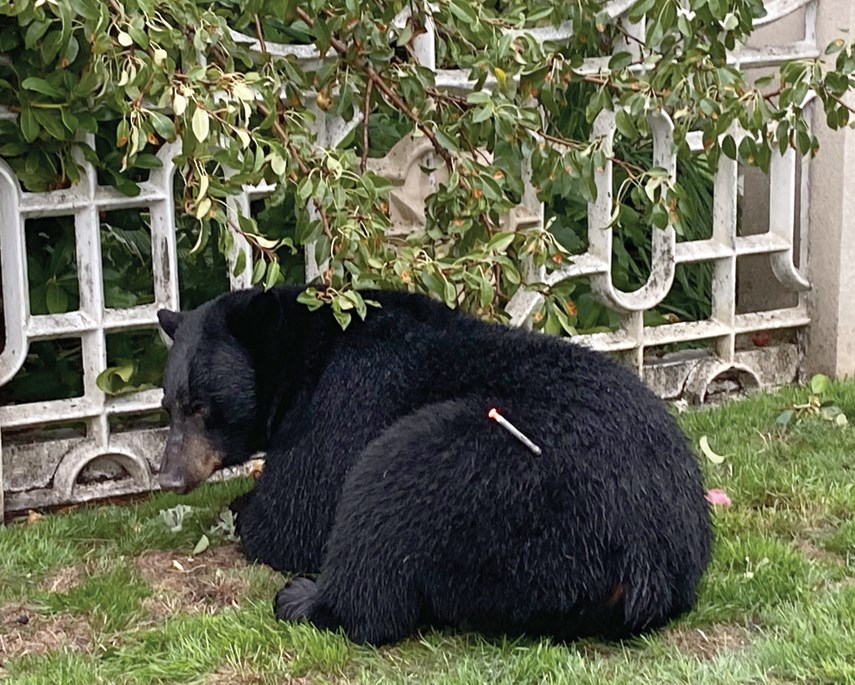It’s that time of year when bears will be venturing further into urban areas in hopes of packing on pounds before the winter arrives – but, sadly, at least one more North Shore bear won’t be hibernating this year.
Conservation officers shot and killed a black bear in Lynn Valley on Thursday (Sept. 16) after it developed a taste for local garbage and became a risk to the public, the BC Conservation Officer Service asserts.
Luci Cadman, education co-ordinator with the North Shore Black Bear Society, said her group is mourning the bear, which they have dubbed Rufus.
“This bear and multiple [others] found unnatural food sources on a very regular basis, sadly, despite education efforts,” Cadman said. “People aren't just getting it. We need them to start acting on this advice.”
The day before, a resident called to report a bear meandering around Kirkstone Park with a tranquilizer dart in its hindquarters. When they found it, Cadman said the bear was calm but not drugged. The next day, the COS returned and tranquilized the bear a second time before taking it away to be shot. By then, many people in the community had seen what was going on, Cadman said, adding she only hopes it inspires more people to do a better job of making sure bears aren’t hanging around and getting used to eating from bird feeders, garbage bins and other sources of food they shouldn’t be getting.
“It needs to be more of a sombre moment, actually, when these things are happening so that people actually understand that this bear won’t be trapped and relocated,” she said. “The events that are transpiring in the community and what people see is actually quite traumatizing, especially for younger children and lots of adults too.”
Cadman said North Shore residents need to keep a respectful distance from bears that do pop up in residential areas, adding that she is receiving too many anecdotes about people pursuing them for a closer look, sometimes with children in tow, and hoping to snap photos. Getting too close to a bear will only make it stressed, she said, and people often misinterpret their behaviour.
“This is something that we're seeing so often - people chasing them in their cars, chasing them on foot. We really want people to give them their space,” she said.
The coming weeks are a critical time for bears as they go through hyperphagia – excessive eating and drinking to prepare for winter dormancy.
That means there is an even greater responsibility to help protect them, Cadman said.
“They will be expanding their range and increasing the amount of time that they’re out. It is quite typical for black bear to be awake and searching for food for about 20 hours a day throughout the fall,” she said, noting last week one was spotted at 12th and Lonsdale. “Of course, in the community, they're looking to supplement their natural diet with all the extra calories that we leave available to them. So the message is: don't tempt them into the neighbourhood with those foods.”
Despite heavier enforcement from the District of North Vancouver, the black bear society is still finding a lot of people leaving garbage out beyond the permitted hours, mistakenly believing that their garbage totes are bear proof, Cadman said. Even without armed conservation officers coming, garbage itself presents a risk to bears, she added
“Not only will the bears be killed for finding food around homes, their bodies will become filled with plastic. They will eat absolutely anything that smells like food. We’ve got to do better for these animals,” she said.
To help educate the public, the North Shore Black Bear Society has launched an all-new website with up-to-date guidelines and best practices.




